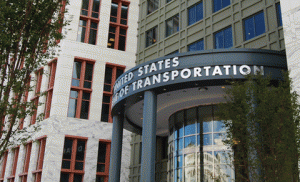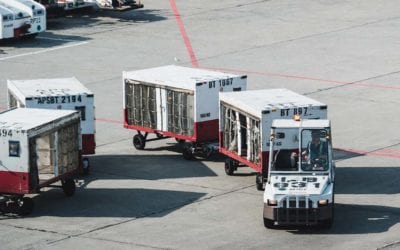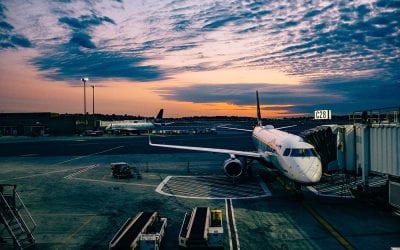DOT regulations to protect airlines have become anti-consumer rules

DOT/FAA rules, rather than watching out for the interests of the American public, are protecting airlines and their oligopolistic control of the international system. It is time that Congress, the DOT, and the FAA re-examine the impact on competition. This airline competition is harmed by DOT/FAA grants of antitrust immunity, the imposition of slot controls, and their approval of code-sharing arrangements.
The Families Sitting Together Act is now the law of the land, but DOT is not enforcing it after almost 6 years
For the last six years, a law passed by Congress and signed by the President has been in effect, but has not been added to the Code of Federal Regulations. Hence, families are still paying hundreds of additional dollars in fees and increased airfares to be able to sit together with their children. DOT refusal to enforce this law creates defacto anti-consumer rules.

DOT and FAA rules assist the giants of the consolidated airline industry.
The following kinds of activities can only happen when airlines no longer compete with each other because of DOT antitrust immunity (ATI) actions and other DOT/FAA actions.
• Consolidation has given larger airlines more control over important airports and harms airline competition.
Large airlines were made stronger through consolidation and ATI gained control of large airports. Prying take-off and landing slots and gates from their corporate fingers became more difficult. Slot controls during the pandemic have been waived by DOT and the FAA. And, gate hoarding prevents new entrants from being able to fly and compete from large airports. For example, some airlines have waited more than four years for gates at major airports in order to start service.
Today, Delta Air Lines and American Airlines control more than 70 percent of slots at LaGuardia. Through these slots (for which they paid nothing, for the most part) they can stop the expansion of competitors. Internationally, Delta’s code-sharing arrangement with Aeromexico (a SkyTeam partner) is making an expansion of competitors who want to fly from Mexico City to the USA very difficult.
• Airline merger approvals mean problems for stranded passengers.
Ever wonder how airlines used to move passengers from one carrier to another when there were weather or mechanical problems? They had interline agreements made among the airlines to handle stranded passengers. Airlines would help each other — and, hence, passengers — by taking care of travelers during disruptions.
Today, very few airlines have tight contractual arrangements to help fellow carriers and passengers in case of “irregular operations.” USAirways once had “irregular operations” arrangements with Frontier Airlines, Spirit Airlines, and others. It canceled its contracts when the merger with American Airlines was approved. This contractual collusion is another way that the large consolidated airlines cement their economic power and damage passenger service.
• Restrictions on distribution of airfares harm airline competition.
In the past, advertising the availability of flights was part of the lifeblood of the airline industry. Today, with consolidation and the dawn of capacity controls, airlines no longer need to be truly competitive. There are few flights compared to demand. Plus, since many airports only have a limited choice of air carriers, major airlines are not so concerned with getting their schedules and airfares out to the public. This issue is more blatant today as we move through the pandemic.
Delta is the poster child for this anti-competitive behavior. They have restricted the publication of their airfares on many smaller search engines. When consumers cannot see the airfares in every search for flights it is impossible to comparison shop. That is the airlines’ major aim — stop comparison shopping and throw a wrench into the free market.
The new Basic Economy airfares are more difficult for consumers to understand than ever. The ancillary fees like baggage charges and seat reservation fees are not included in the basic airfare and never show up in the buying process. Consumers have to pay them after they book their flights. Plus, to add insult to injury, the airlines tack on supposedly banned change-fees to Basic Economy airfares.
Are ATI, code-sharing, and slot hoarding, together with DOT decisions, harming competition and everyday airline passengers? Yes.
• American, Delta, and United spent years trying to roll back negotiated “open skies” treaties to help their alliance partners and make access to the fastest-growing world markets in Africa and southern Asia more difficult for American corporations and residents.
• Airfares remained high despite the dramatic drop period in aviation fuel prices. And, today, airlines are already singing the blues of rising jet fuel costs. Consumers are now jaded. They know there is little relationship between fuel costs and airfares.
• Stranded passengers watch wistfully as planes with empty seats take off to their destinations during mechanical and weather delays because the airlines refuse to work together for the stranded passengers’ benefit.
Code-sharing and international airline alliances are no longer working for consumers.
Once upon a time, when the airlines were struggling, there were more than a dozen airlines, code-shares, and alliances that seemed somewhat reasonable, though they were controversial even back in those days. Rather than make flying better for passengers they have turned out to eliminate airline competition.
Many international airline alliances do not provide boarding passes unless the international tickets are all on one ticket. This eliminates the ability to change alliances midway on a trip. Some international airline alliances do not offer baggage transfers for passengers changing from one international alliance to another. The years prior to the creation of airline alliances were far more flexible for long-distance fliers.
Today, the international consolidation of economic power in the hands of the three top airline alliances is dangerous to airline competition. It harms the aviation free market. It slows the growth of competition both domestically and internationally. Government investigators and regulators must re-examine the premises of these kinds of arrangements — code-sharing, airline alliances, and antitrust immunity grants.
The American public needs a shot of airline competition re-injected into the aviation market. The new competition across the Atlantic shows how much comparison shopping works to moderate airfares and create better customer service for American fliers.
America’s airline consumers also need a DOT and FAA that are focused on their needs and rights. DOT should not focus on maintaining policies that only serve the business aims of the airlines.

Charlie Leocha is the President of Travelers United. He has been working in Washington, DC, for the past 14 years with Congress, the Department of Transportation, and industry stakeholders on travel issues. He was the first consumer representative to the Advisory Committee for Aviation Consumer Protections appointed by the Secretary of Transportation from 2012 through 2018.



